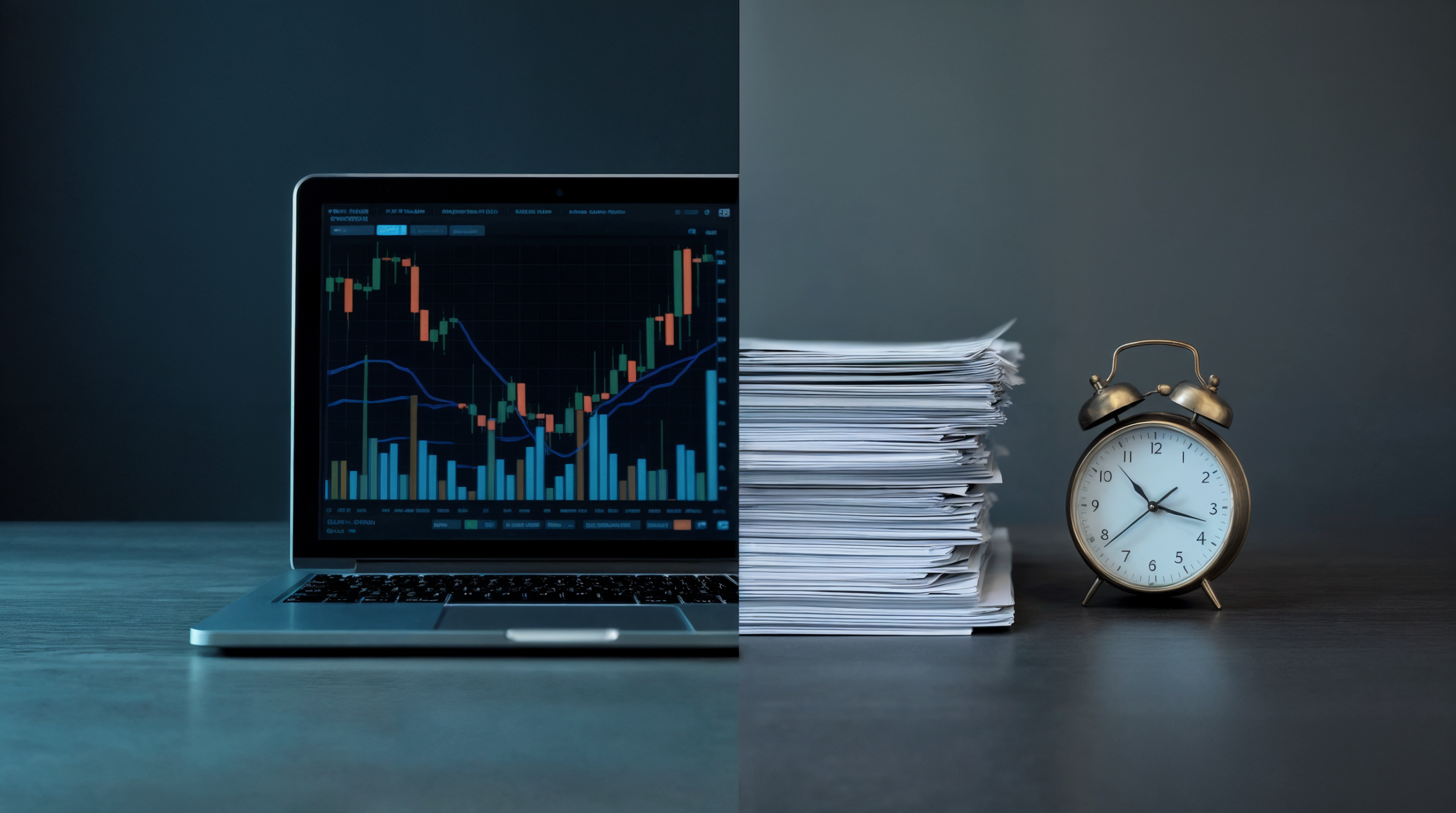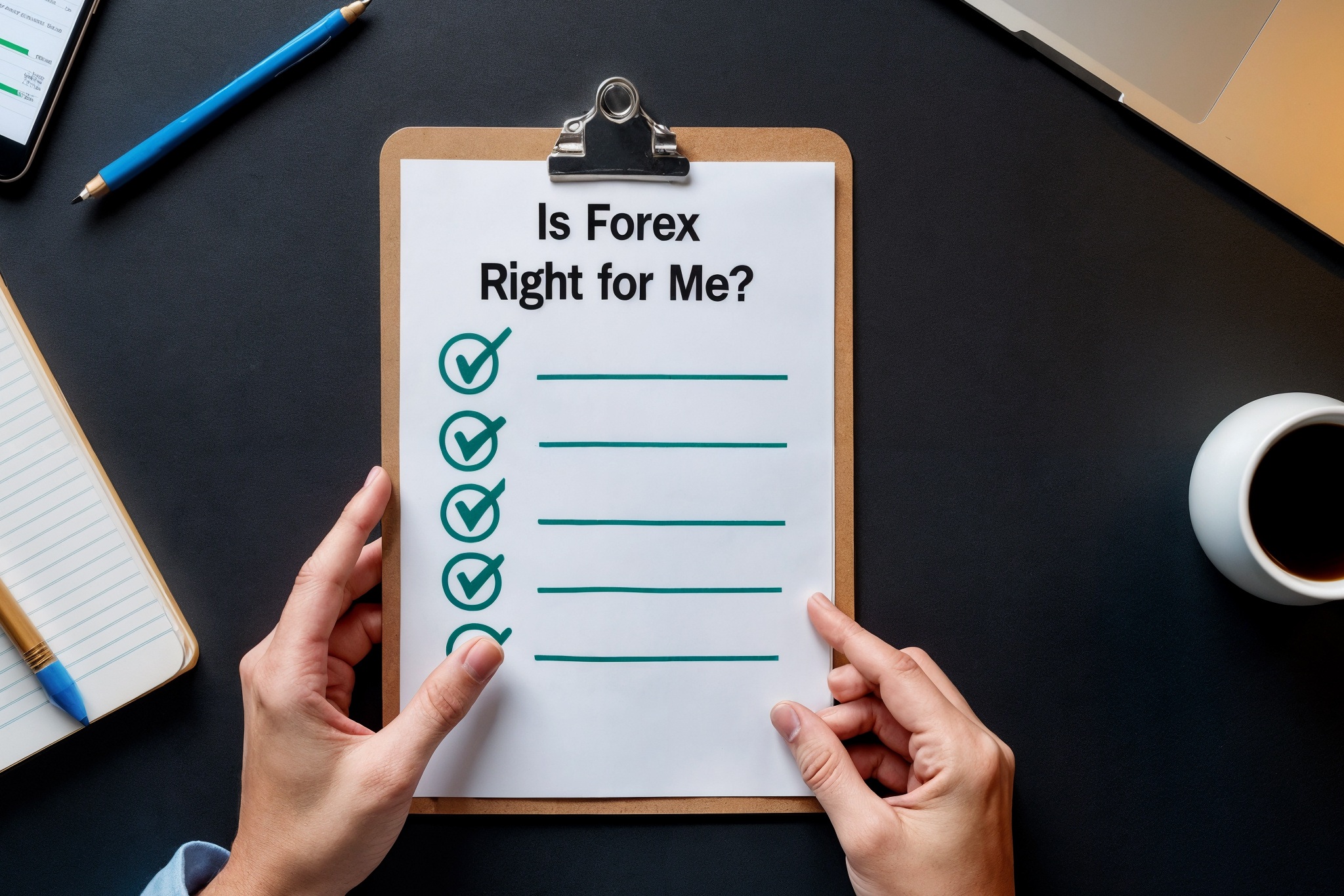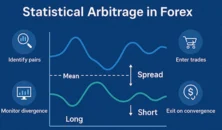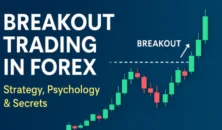- Introduction: Should You Start Trading Forex in 2025?
- What Is Forex Trading? A Simple Explanation
- Is Forex Trading Better Than Other Jobs or Investments?
- The Pros of Forex Trading in 2025
- The Cons of Forex Trading in 2025
- Real Example: My First Year of Trading
- Step-by-Step Guide: How to Decide if Forex Trading is Right for You
- Summary: Is Forex Trading a Good Idea in 2025?
- Key Takeaways
- Ready to Start Your Forex Journey?

Introduction: Should You Start Trading Forex in 2025?
If you’re new to forex trading, one big question is probably on your mind: Is trading forex a good idea for me?
With global markets evolving rapidly in 2025, and new technology making trading more accessible, it’s easy to feel excited—but also overwhelmed. I’m Hassan Safari, a financial risk manager and CTO at a regulated forex brokerage, with 7 years of trading and investing experience. In this guide, I’ll break everything down clearly, so you can confidently decide if forex trading fits your goals and lifestyle.
What Is Forex Trading? A Simple Explanation
Forex (foreign exchange) trading is the buying and selling of currency pairs, like EUR/USD or GBP/JPY, to make a profit from changes in exchange rates.
- Market size: As of 2025, the forex market trades over $7.8 trillion daily (BIS Triennial Survey, 2025).
- Trading hours: Open 24 hours a day, 5 days a week.
- Global reach: You can trade from almost anywhere with just a phone or laptop.
Is Forex Trading Better Than Other Jobs or Investments?
Let’s compare forex trading to some common alternatives:
| Option | Pros | Cons |
|---|---|---|
| Forex Trading | Flexible hours, low capital entry, high liquidity | High risk, steep learning curve, emotional stress |
| Stock Trading | Familiar companies, regulated markets, dividends | Higher capital needed, limited hours (market closes daily) |
| Remote Jobs (e.g., freelance, IT) | Stable income, lower risk | Time-for-money trade-off, skill-specific |
| Long-term Investing (ETFs, Index funds) | Passive income, compounding | Slow returns, capital locked in longer |
Key insight:
Forex trading offers more flexibility and lower startup costs than many jobs, but it also comes with higher risk and no guaranteed income.

The Pros of Forex Trading in 2025
- Low Capital Requirements
You can start trading micro lots with as little as $50–$100, thanks to regulated leverage (1:30 for retail clients in most jurisdictions — ESMA, 2025).
Be cautious with leverage—it can magnify both profits and losses. - High Liquidity & Fast Execution
With trillions traded daily, you can enter and exit trades quickly. Many brokers offer execution speeds under 100 milliseconds (ForexMagnates Report, 2025). - Flexible Trading Hours
Trade any time that fits your schedule—ideal for part-timers or people in different time zones. - Access to Free Education & Tools
Most brokers provide demo accounts, tutorials, and economic calendars to sharpen your skills before risking real money.
The Cons of Forex Trading in 2025
- High Risk of Losing Money
According to FCA’s 2025 report, 71% of retail forex traders lose money.
Risk management is not optional—it’s essential. - Emotional Stress & Discipline Needed
Trading without a plan leads to emotional decision-making and losses. Patience and discipline take time to build. - Regulatory Differences Worldwide
Ensure your broker is regulated in your region (FCA UK, ASIC Australia, CFTC USA). Avoid offshore brokers with weak protections. - No Steady Income
Unlike a job, forex trading has no guaranteed paycheck. Income can be inconsistent, especially at the start.
Real Example: My First Year of Trading
In 2018, I started with $500 and no clear plan. I lost 40% in the first 6 months. When I focused on risk management and limited leverage, I began to grow steadily. By 2021, I was consistently profitable and eventually became a financial risk manager.
Lesson: Don’t rush. Focus on education and risk management first.
Step-by-Step Guide: How to Decide if Forex Trading is Right for You
- Understand Your Goals
Are you looking for full-time income, or part-time side income? - Assess Your Risk Tolerance
Are you comfortable with potential losses as part of the learning process? - Check Your Available Time
Do you have at least 1–2 hours daily to learn and practice trading? - Start with a Demo Account
Test strategies risk-free using a demo account for 1–3 months. - Choose a Regulated Broker
Look for brokers licensed by FCA, ASIC, ESMA, or CFTC. - Educate Yourself Continuously
Use free courses, webinars, and books to build a solid foundation. - Set a Realistic Budget
Only trade with money you can afford to lose (not rent or living expenses). - Track Your Progress
Use a trading journal to log trades, mistakes, and lessons learned.
Summary: Is Forex Trading a Good Idea in 2025?
Yes—but only if you are ready to learn, manage risk, and start small.
Forex trading offers flexibility, low capital entry, and global access. But it also involves high risk, emotional discipline, and no guaranteed income. For many beginners, starting with a demo account and part-time practice is the safest path.
Key Takeaways
- Forex is flexible but risky—don’t treat it like a get-rich-quick scheme.
- Start with a regulated broker and a demo account.
- Focus on risk management and continuous learning.
- Track your progress and set realistic expectations.
Ready to Start Your Forex Journey?
If this guide helped clarify your decision, share it with a fellow beginner or start your practice account today.
👉 Try a demo account and test your skills risk-free.
👉 Follow Global Forex Solutions for more beginner-friendly trading tips!







